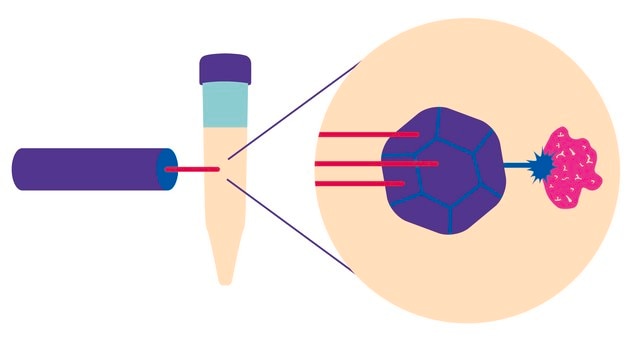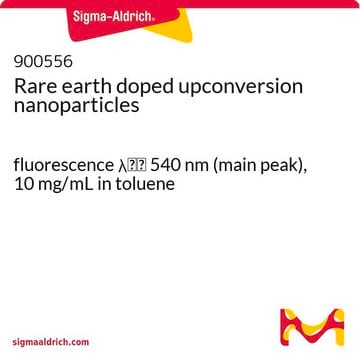926647
Upconversion Nanoparticles
NaYF4,Yb,Er@NaYF4,Yb,Nd, Oil soluble core shell,808 excitation, green
Sinónimos:
UCNPs
About This Item
Productos recomendados
Quality Level
concentration
5 mg/mL in cyclohexane
matrix active group
Oleic acid surface treatment
particle size
30 nm±5 nm
fluorescence
λex 808 nm (green)
λem 540 nm
λem 560 nm
storage temp.
2-8°C
¿Está buscando productos similares? Visita Guía de comparación de productos
Application
This optical features of UCNPs, results in deep tissue penetration and minimal autofluorescence background, for a broad range of applications of UCNP in diagnostics and biomedical imaging systems.
Applications include:
- Fluorescent microscopy
- Deep-tissue bioimaging
- Nanomedicine
- Optogenetics
- Security labelling
- Volumetric display
Legal Information
signalword
Danger
hcodes
Hazard Classifications
Aquatic Acute 1 - Aquatic Chronic 1 - Asp. Tox. 1 - Flam. Liq. 2 - Skin Irrit. 2 - STOT SE 3
target_organs
Central nervous system
Storage Class
3 - Flammable liquids
wgk_germany
WGK 3
flash_point_f
-4.0 °F - closed cup
flash_point_c
-20 °C - closed cup
Elija entre una de las versiones más recientes:
Certificados de análisis (COA)
¿No ve la versión correcta?
Si necesita una versión concreta, puede buscar un certificado específico por el número de lote.
¿Ya tiene este producto?
Encuentre la documentación para los productos que ha comprado recientemente en la Biblioteca de documentos.
Nuestro equipo de científicos tiene experiencia en todas las áreas de investigación: Ciencias de la vida, Ciencia de los materiales, Síntesis química, Cromatografía, Analítica y muchas otras.
Póngase en contacto con el Servicio técnico




